You may be wondering what foods are ideal to eat during your recuperation if you recently underwent dental implant surgery. Due of their delicate texture and high nutritional value, eggs are a widely preferred option. But after surgery, when and how should you include them in your diet? The advantages of eating eggs following implant surgery will be discussed in this article. Together with other important food advice for a speedy recovery, we’ll also go over how to make them.
Why Are Eggs Good After Implant Surgery?
For meals after Implant Surgery, eggs are a great option. They are nutrient-dense, soft, and simple to chew. The following should include eggs in your diet during your recuperation:
- High in Protein: Repairing damaged tissue and healing requires protein. A substantial amount of high-quality protein can be found in eggs.
- Rich in Vitamins: Vitamins B12 and D are found in eggs. Calcium absorption is aided by vitamin D, and healthy bones depend on it.
- Soft Texture: Eggs are easy to eat and won’t put undue strain on your recovering gums thanks to their soft texture.

When Can I Start Eating Eggs?
After your implant procedure, you can immediately begin eating eggs. This is a rough timeline:
First 24 Hours
Keep your diet to very soft or liquidy items on the first day. This applies to yogurt, broths, and smoothies. You should avoid eating solid meals because the surgery will leave your mouth sore and numb.
Days 2-3
You can start including eggs into your diet after the first day. Eggs that are softly scrambled are a fantastic option. They are mild on your gums and simple to make.
Days 4-7
You can consume eggs in many ways as you advance. Try poached, soft-boiled, or even an omelette. These changes make your meals more engaging to eat while maintaining their chewability.
After One Week
Your mouth ought to feel better by now. You can begin consuming a greater variety of solid foods. Keep eating eggs since they are a great source of critical nutrients for recovery.

How to Prepare Eggs for Post-Surgery Diet
Here are a few easy recipes for eggs that are ideal for healing:
Scrambled Eggs
Eggs that have been scrambled are tender and simple to chew. To make them even softer, cook them in a small amount of milk. Steer clear of adding any spices or chemicals that could cause irritation to your gums.
Soft-Boiled Eggs
Another mild option is soft-boiled eggs. To maintain a soft and runny yolk, boil the eggs for around five to six minutes. For added flavor, you can sprinkle them with a little salt before eating.

Poached Eggs
Poached eggs are delicate and fluffy. Pour a little vinegar into a cup of boiling water, crack an egg into it, and carefully lower it into the water. Cook until the yolk is still runny and the white is set.
Omelette
A basic omelette might also be a delicious choice. For added nutrition, you can add some soft cheese or cooked veggies that have been coarsely chopped. Steer clear of anything tough or crunchy.
Other Dietary Tips for a Smooth Recovery
Stay Hydrated
To keep your body hydrated, sip on a lot of water. This keeps your mouth moisturized and aids in the healing process.
Avoid Hard and Crunchy Foods
Avoid raw veggies, chips, and nuts. They can be difficult to chew and could cause pain at the surgery site.

Eat Nutritious Foods
Include other soft, nourishing foods in your diet in addition to eggs. Yogurt, mashed potatoes, and oatmeal are excellent options. These nourish you with vital nutrients without making you feel uncomfortable.
Follow Your Dentist’s Instructions
Always abide by the precise dietary recommendations made by your dentist. They are the ones who are most familiar with your situation and can offer the greatest guidance.
Stay Away from Spicy and Acidic Foods
Acidic and spicy meals might aggravate your gums and impede the healing process. Until your mouth heals completely, stay away from foods like citrus fruits and hot curries.
Rest and Take It Easy
For the first few days, refrain from strenuous physical activity. Your body can concentrate on healing when you are sleeping.
Conclusion
After receiving dental implants, eggs are an excellent dietary choice. They are simple to include in your meals because they are tender, wholesome, and adaptable. Be sure to prepare. Adhere to recommended diet. This will guarantee a quick, easy recovery. Do not forget to hydrate with water. Steer clear of foods that are sharp or hot. For optimal outcomes, heed the advise of your dentist.
For more information visit our Website.
Frequently Asked Question
After surgery, can I have scrambled eggs right away?
Yes, scrambled eggs are a great option right after surgery because they’re soft and simple to chew.
Are eggs that have been hardboiled safe to eat?
Hard-boiled eggs might be too tough to chew immediately after surgery, so soft-boiled eggs are advised first.
For what duration should I abstain from hard foods?
To promote optimal healing following surgery, stay away from hard foods for at least two weeks.
Is it possible to add veggies to my omelette?
Yes, but make sure you chop the vegetables finely. To prevent any discomfort, cook them until they are soft.
What other soft meals are acceptable for me to eat?
You can consume soft foods like bananas and berries, yogurt, smooth soups, and mashed potatoes in addition to eggs.
